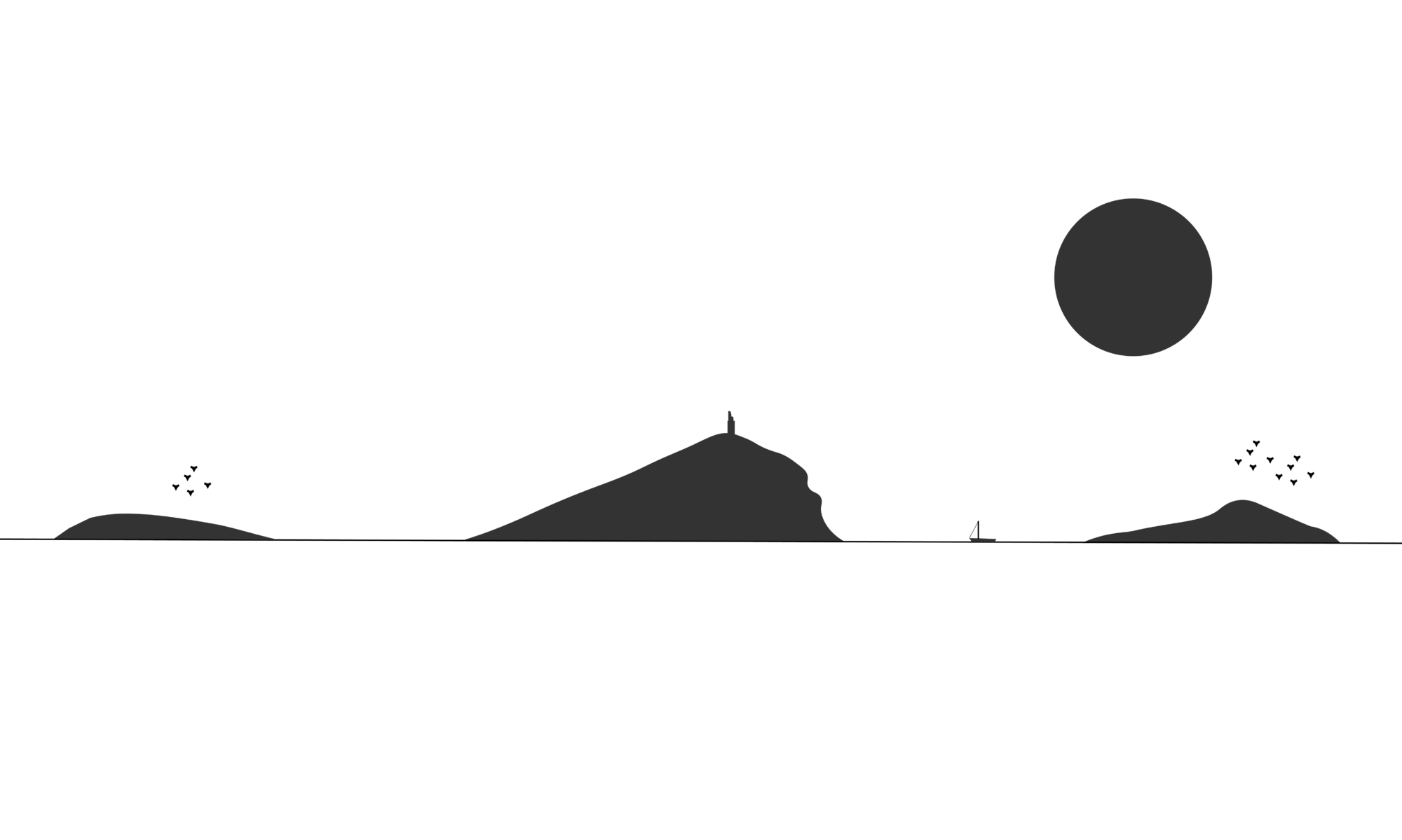Our seventh in-depth BEARS participant profile of the season highlights the experience of Cassandra Phang-Lyn, a graduate student at Western University and protege of Catherine Pratt since her undergraduate days. The University of Toronto tried its best to recruit Cassandra into the MACS graduate program a couple of years back, but she could not be convinced to come over to the dark side, much to our faculty’s chagrin! Fortunately, we were still able to retain her services for the BEARS project, to which she brought many years of fieldwork and lab experience. Amid a busy schedule of fighting off recruitment offers, studying the ancient past, and taking care of two energetic dogs, Cassandra recently sat down for a BEARS interview to share some of her archaeological experiences of the past and plans for the future.
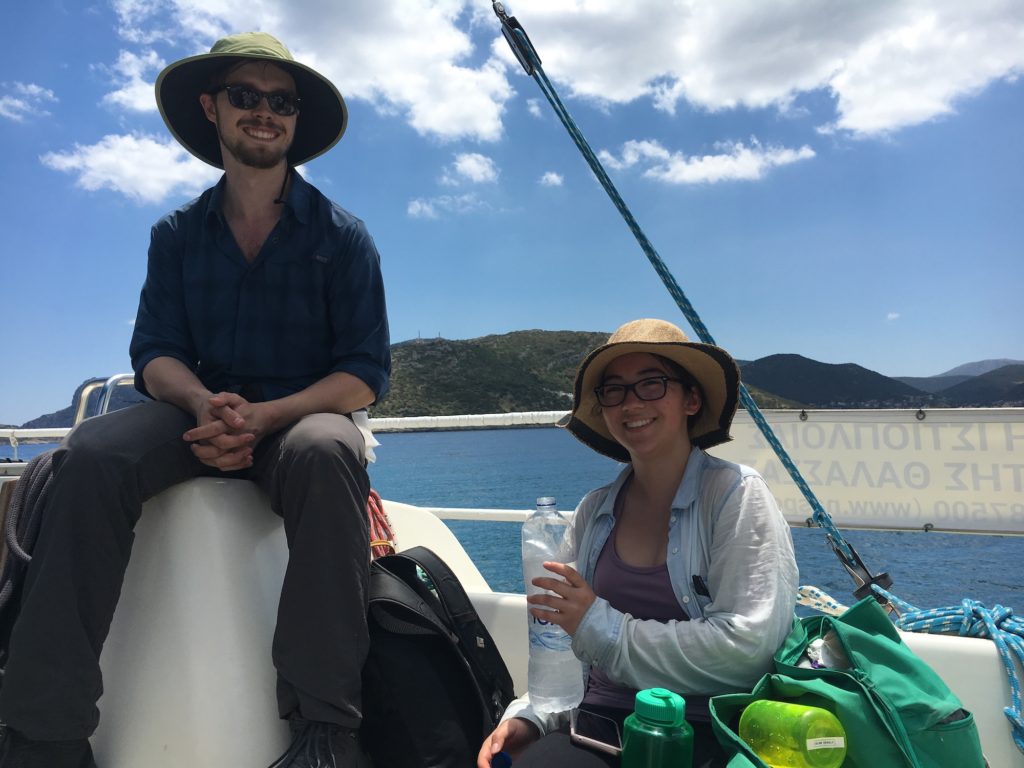
SCM: Aside from being a member of the BEARS project, you are currently pursuing a Master’s Degree in the Classics department at Western. Can you tell us what got you interested in Classics and why you decided to go on into grad school?
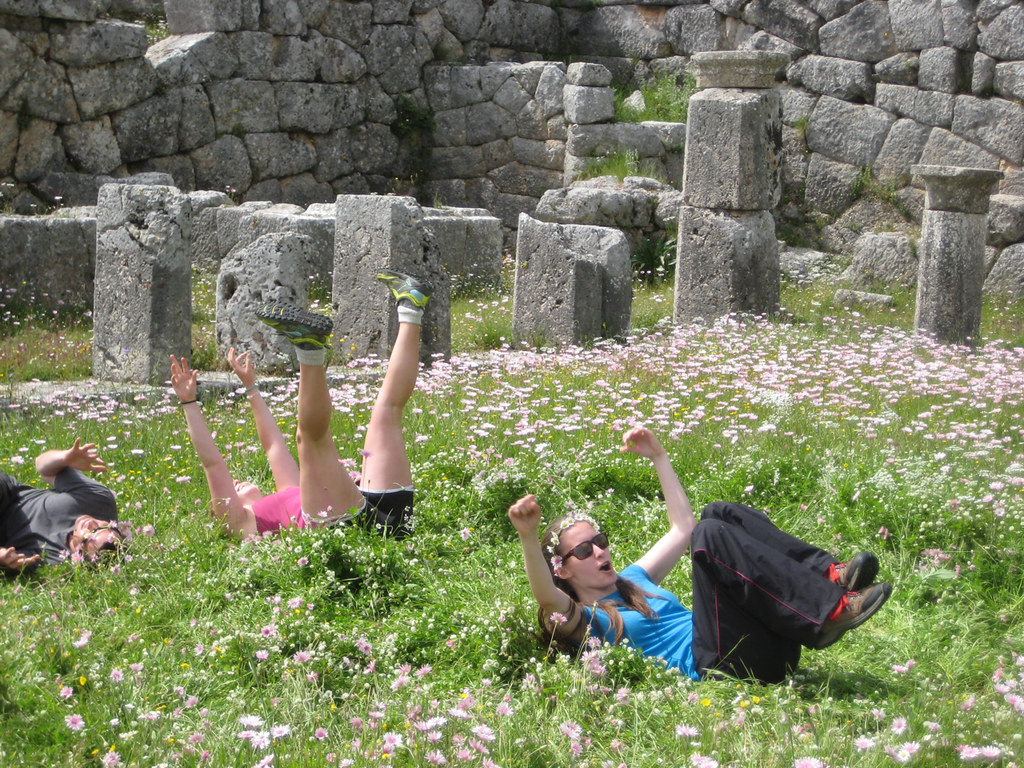
SCM: That sounds not too dissimilar from my experience – I went to Greece somewhat randomly on a study abroad thing, and thought it was totally amazing and that I needed to spend as much time as possible there for the rest of my life – like a mostly irrational love-at-first-sight sort of thing. You can tell that I am an excellent and mature adult decision maker! But that’s neither here nor there – where are you currently in the program and what kinds of research are you pursuing?
CP-L: Sure! Right now, I am finishing up the first year of my Master’s at Western. In our program, we have a full-year course that all first-year graduate students take. It’s a broad overview of the history, literature, and archaeology of Greece and Rome. It’s very compact! I was saddened that we did not spend as much time on archaeology as I would have liked. But it was a good course, a useful overview of a lot of things. It was nice to hear different perspectives from the other students, too. Then, obviously, I’ve been doing the required language courses, and I also took Catherine Pratt’s course on the topography of Athens, and a course on the Roman household with Kelly Olson, which covered a lot of social history, which was quite fun.
Currently, for my summer research project, I am working on Mycenaean figurines. My current plan is to do quite a lot of background work on the figurines and understand the palatial types and their use and context, then also try to dive into the postpalatial period, although I haven’t quite gotten there yet. My impression at the moment is that there is less postpalatial material, which is not so surprising.
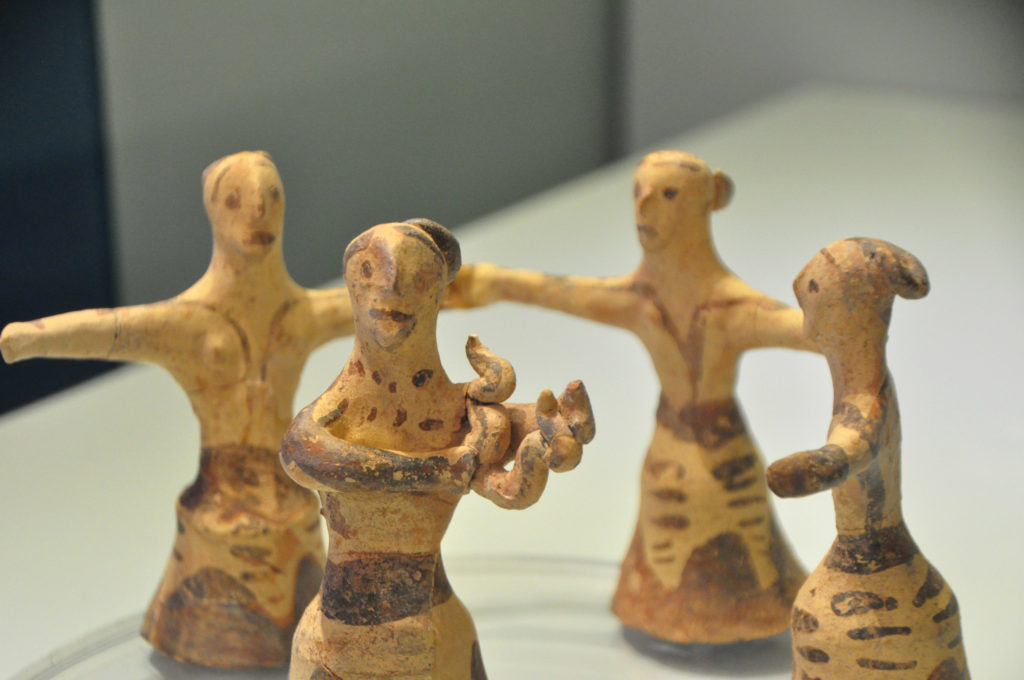
SCM: That sounds quite promising – surely there’s plenty to be said about Mycenaean figurines and their evolution after the palatial period that hasn’t been said yet. But you’ll have to let me know what you find out! Now, aside from these figurines, do you have a favorite text or object or category of material from the ancient world? And what is it about it that gets you really excited?
CP-L: Oh, that is a really tough one! I’ve always been really fascinated by wall paintings. I took an ancient painting course with David Wilson when he was still at Western, and I was so enamored of that material. The paintings are just beautiful and it’s so cool how well some have been preserved over many thousands of years. I like the Roman paintings, but I was able to go to Akrotiri and also Knossos, and I really love those Minoan paintings especially. They are just awesome.
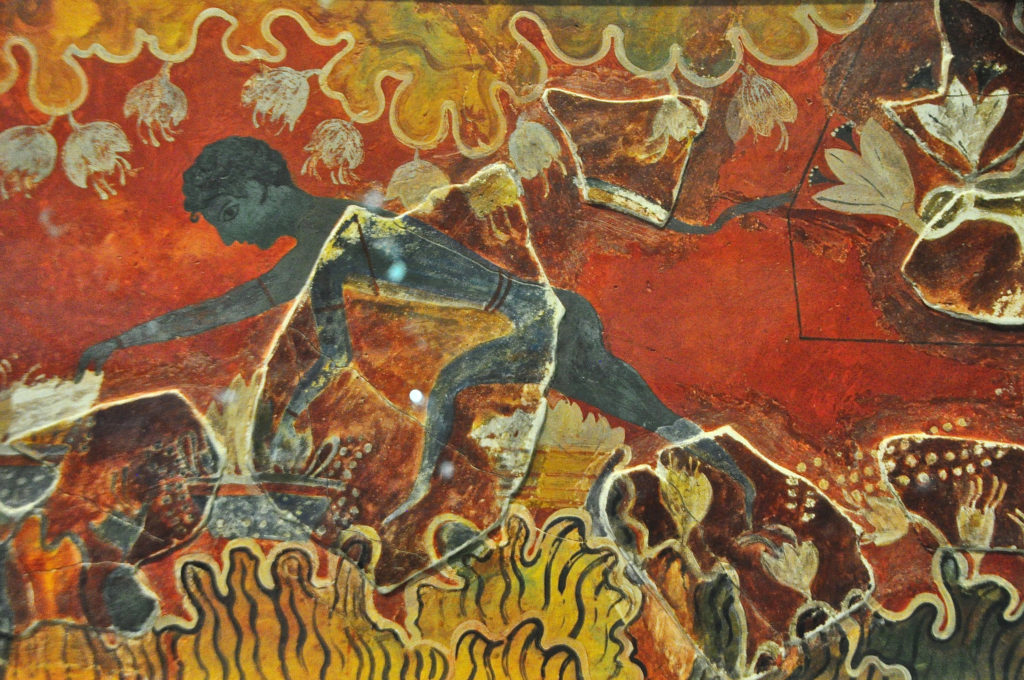
SCM: That’s a good choice! I find that those paintings do portray a kind of psychedelic natural world that really draws one in. Although I do not envy the people that work on them! I do not think I could do all of that painstaking jigsaw work of conservation and reconstruction.
CP-L: For sure! Let alone trying to figure out what they mean, which seems so difficult.
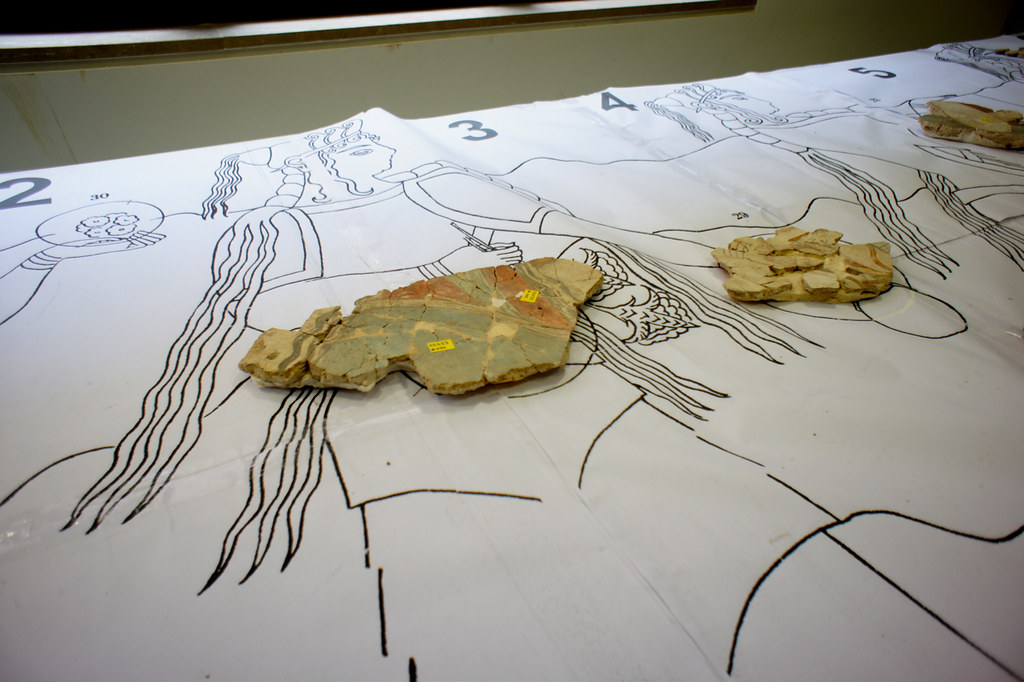
SCM: Totally – and then for Knossos you have to also un-think all of the made up stuff that Evans imposed on the material, which is an additional challenge! Speaking of different types of analysis we do as archaeologists, it sounds like you have had a lot of fieldwork experiences all over the place and have done all kinds of things, from excavation to lab work – it’s hard to keep track. So give me the rundown!
CP-L: The first experience I had was the Vindolanda field school up in northern Britain. That was really cool because I was in the trench – on hands and knees, shoveling dirt, opening new trenches, all that stuff. The year I went (I wasn’t in the trench where this happened) they found a bunch of writing tablets, and I got to see them coming out one by one as they were getting rushed down to the museum and the lab to be conserved. That was a really fun experience. And it’s a cool site up there because there are so many volunteers from around the world – you talk to people from all over the world and of varying ages. They are also very serious about the tea breaks. When it was the afternoon, the trench leader would be very concerned that we get cleaned up and ready for the tea break when it was our turn, because the team was so large that we had to split the tea into shifts, and we did NOT want to miss our shift.
SCM: Priorities! British style.
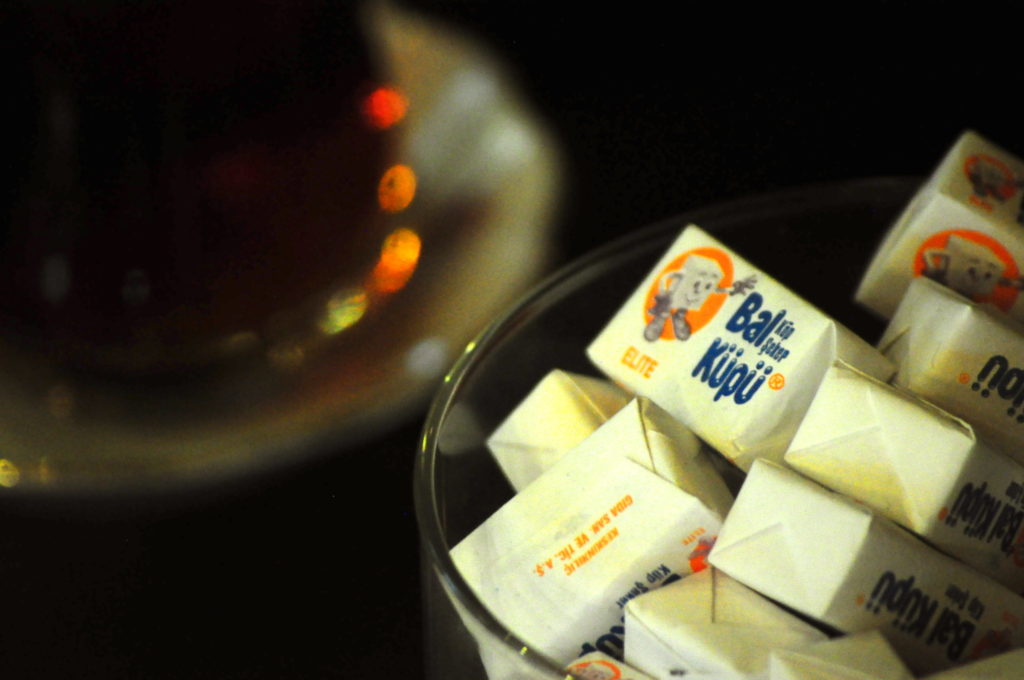
CP-L: Yeah! So that was one of the more physically intense projects I’ve worked on – there was a lot of shoveling barrels of dirt, that kind of thing. It was a fun challenge to try to get the barrel up the plank and out of the trench without any accidents.
SCM: That’s not the kind of thing that your usual schoolwork trains you for – getting the barrel up the ramp without squashing someone! That’s some real-world type of experience.
CP-L: Exactly. Then the following year I started my work with Catherine Pratt in the Agora of Athens, which was more like working through old archival material. We were searching through the old catalogues and figuring out how the system works, and thinking about what we wanted to find and how we would organize our data. It was really interesting to see how this kind of process worked – analyzing things that you didn’t necessarily dig up yourself. Then I did a month with Carl Knappett at Palaikastro. Unfortunately, we weren’t able to dig that year, so we were doing post-processing of material that had been excavated a year or two before – organizing and cataloging. That gave me a lot of experience looking at pottery and identifying clay types and all that kind of stuff. Then last summer, I started on the BEARS project, which was my first experience surveying, and that was good, too. It was fun to be out in the field and looking at the landscape, and I liked getting a different view of the many facets of fieldwork that I didn’t even know existed. That is one thing you learn as an archaeologist as you go through your career – just how varied the work is.
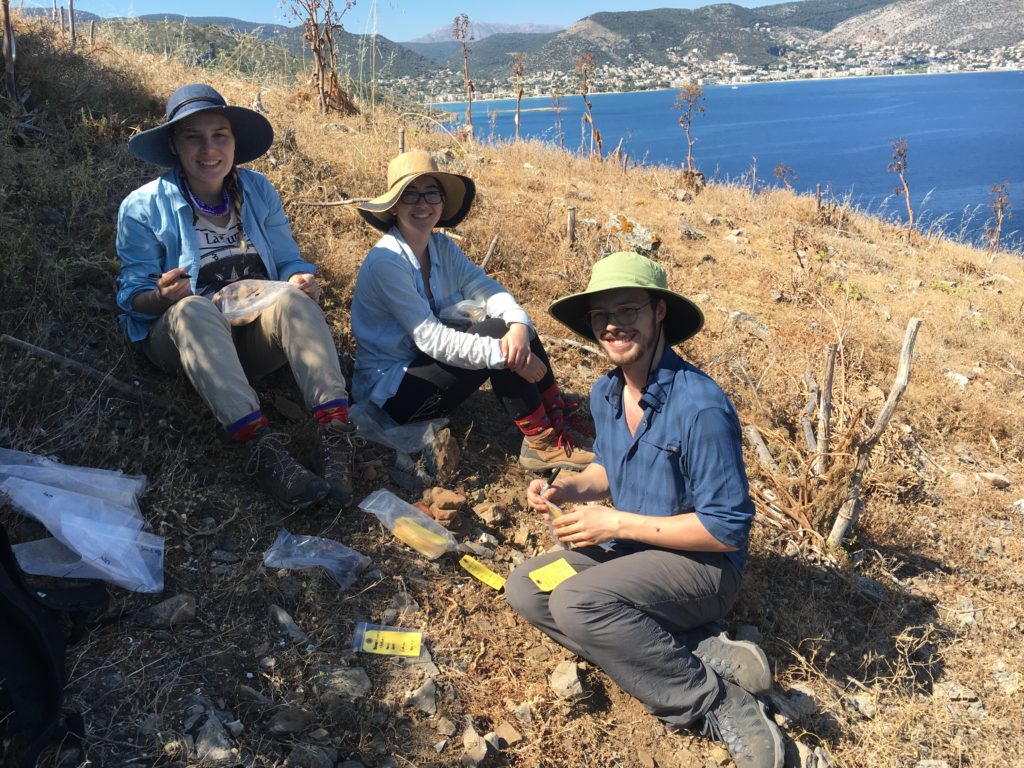
SCM: Yeah, that’s a great point – there are many, many ways to be a practicing archaeologist, even though the popular ‘type’ is usually someone digging holes in the ground or whatever. And it’s really a testament to the quality of the program and your mentors at Western that you’ve already been able to experience so many kinds of methods and have participated in work behind and in front of the curtain, so to speak. Thinking back on my fieldwork career, I’m pretty sure I didn’t get much of a view of that behind the scenes work that people do in a lab until very late in grad school, so you’re way ahead of the game in that sense. So far, what would you say is your favorite type of hands-on work and what do you like particularly about that?
CP-L: Another tough question! I think being in the trench for me was the best experience so far. Just being down in a trench carefully – or sometimes maybe with topsoil not so carefully! – exposing something you don’t know will or will not be there, and then finding something. That’s just so satisfying and rewarding. I’ve not dug in Greece yet, though, so maybe I’ll have a different view after I’ve dug in more contexts! But I really liked excavating a lot.
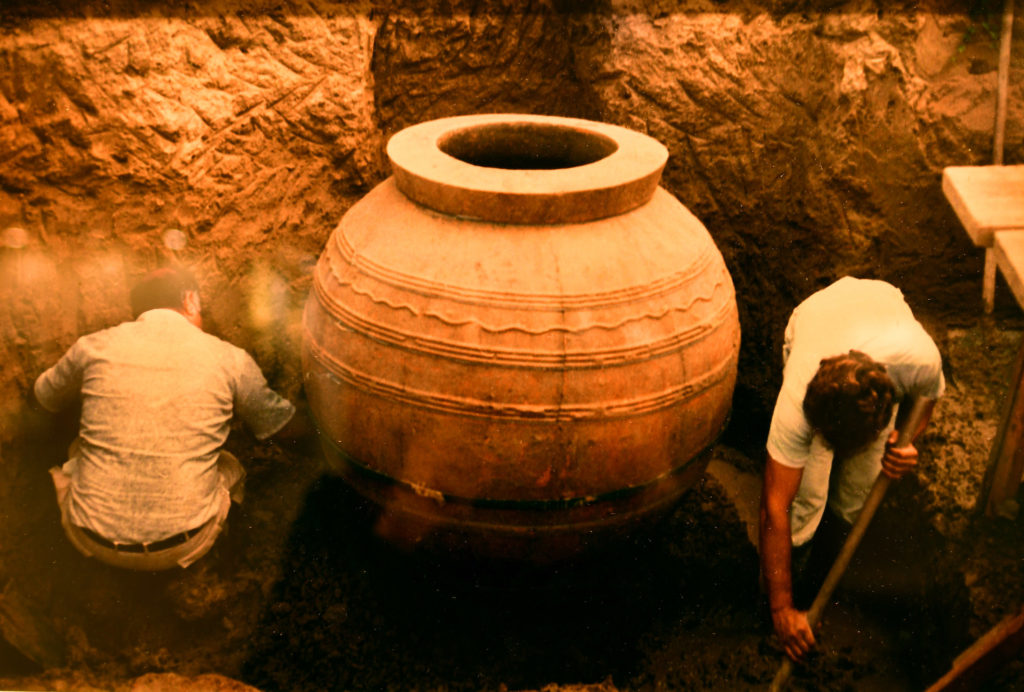
SCM: Of course, we both know that there’s much more to an archaeological project than just the work! As you mentioned before, when you go on a field project, you’re thrown into this strange life situation, usually with people from around the world and all different backgrounds. From all of your various experiences in the field, do you have any crazy stories or random things that have happened that stand out as memorable or unexpected?
CP-L: One of my favorite things from Vindolanda was that if we didn’t get a ride down into the town to go grocery shopping, we had to walk through farmers’ fields, which is totally allowed up in Britain. Now, in those fields, there were some horses. And I LIKE horses, but those were some nasty looking horses! They did NOT like us walking through those fields! There was an electric fence separating us from them, but even so, they were very mean-looking horses and this caused a lot of concern. That was something that I was not expecting or anticipating that I would encounter in my fieldwork project. There was much hurrying to get over the stone fence and get outta there on the grocery run.

SCM: Haha – usually I think of horses as friends to the human, rather than a terrifying and aggressive predator!
CP-L: Yeah, every time we would scout it out and check if the horses were there, and if the coast was clear we’d basically run through the field.
SCM: Did you try to make friends with them, like bringing them some snacks or something?
CP-L: I thought about it, because I like horses, but everyone else was very nervous and I figured it was best just not to mess with them. I didn’t want to get everyone into a panic!
SCM: Perhaps there is an obscure northern English proverb about this: ‘nasty horses eyer be panicking gentyl archyologistes’, or something like that. I don’t think I’ve ever met an aggressive horse, but perhaps it’s a local Vindolanda thing.
CP-L: Yeah, it was weird. I did not expect that. But these horses definitely did not like people. Or they didn’t like us anyway.
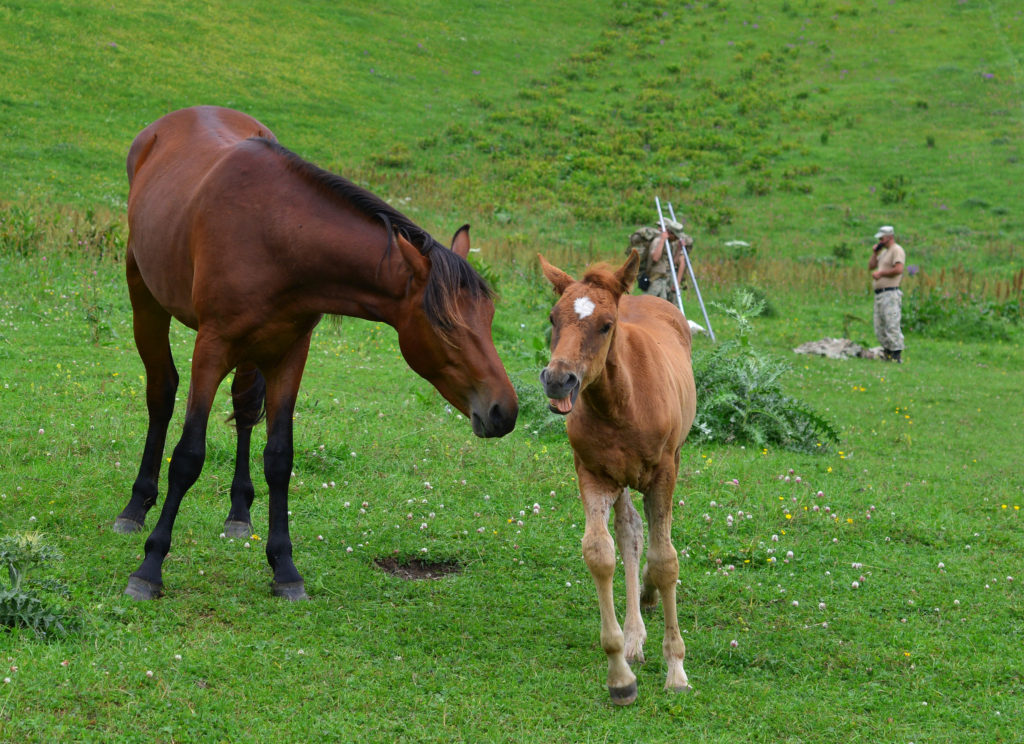
SCM: Anti-archaeologist horses! Cool. That is definitely not a story I’ve heard before, dangerous attack horses. Other than perilous livestock encounters, what is your feeling about life on an archaeological project?
CP-L: I love working on field projects. It’s always so fun to either meet a new group of people or go back to see people that you know from previous seasons. It’s wonderful to be surrounded by people that are interested in what you are interested in, and everyone shares their stories from the day over beer at the end of the day, which is so much fun. You get to find out what’s happening with the other teams – of course sometimes you do get a little jealous when another group finds something cooler than you did! But, in general, I really love the camaraderie of projects the most.
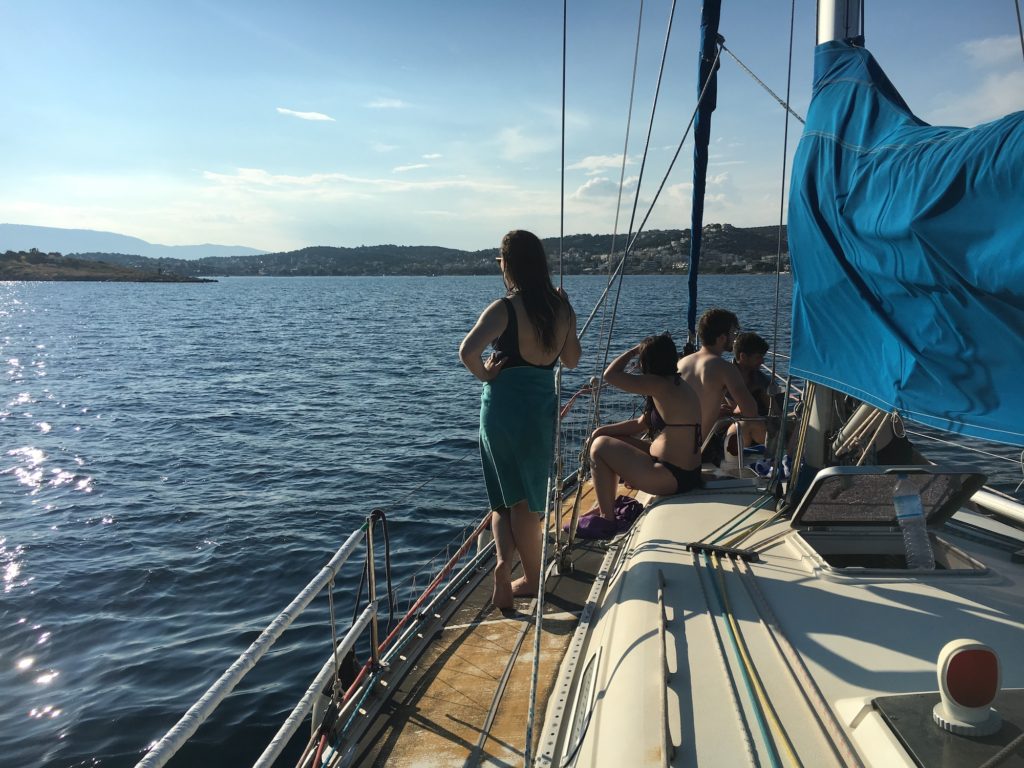
SCM: Right, it is always great to have a cohesive team working together to do something relatively unusual and living together in relatively unusual circumstances. Speaking of going to far-away places, you mentioned earlier that one thing that got you into this career originally was going to Greece and immediately wanting to spend a lot more time there. What is it that gets you about Greece specifically?
CP-L: It’s so hard to pinpoint any particular thing…I just remember that when I first got there, I had this feeling – ‘this is a good place.’ I guess it’s more the vibe of it more than anything else. Life feels much more laid back and less rushed than North America, which is very inviting. It’s also just so incredible to be surrounded by all of this material that I’ve read so much and thought so much about. It always amazes me how the modern and ancient worlds are so integrated together. Sometimes you are just walking down the street in Athens and the glass under your feet is covering over these ancient ruins. I think that is just really cool.
SCM: Not so much of that going around in London Ontario!
CP-L: Nope, not so much!
SCM: Jenny made that point too – how it’s kind of mind-blowing for a North American that you can get a coffee at a café then walk across the street to an ancient temple that’s thousands of years old.
CP-L: Yeah, and after a while it seems like a lot of people don’t even notice that stuff anymore. Like you’re just wandering around and there’s the acropolis but you don’t even look at it! How could that happen?
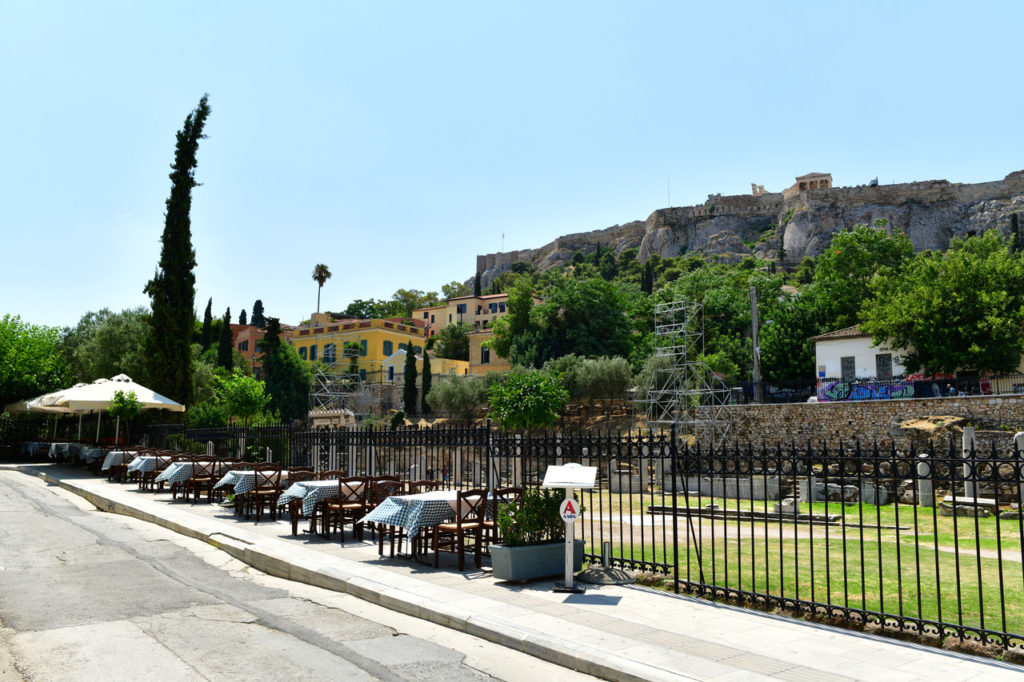
SCM: I think I’m totally at that point with Athens – it’s just another part of the city that I don’t even think about too much when I’m there. Although probably after all of this pandemic stuff I will have a new, fresh appreciation of the many wonders of the Mediterranean and how lucky we are to spend so much time there. Meanwhile, what have you been up to during the lockdown and how have you been staying sane over the last several months? And here, really, I’m just looking for advice from people who are doing a better job of staying sane than I am!
CP-L: When I am home with my family I can go out for walks with my dogs, which has been really helpful – just to make sure I have one outing per day. But now it’s actually too hot for them to go out except early in the morning or in the evening. We are talking about a Boston Terrier and a Bulldog, so very short faces – very hot heat, they cannot do that. Other than research and stuff, I’ve mainly been reading books and playing video games. I actually reread the Percy Jackson series because I found them in a box at home, and I figured that since I wasn’t going to Greece I might as well read about a fantasy adventure related to Classics!

I really do enjoy video games, so that’s been a good way to pass the time. I have a lot of friends that play similar games, so we’re online relatively frequently playing together, and that’s also a way to talk to my friends and catch up with them.
SCM: Video games have an incredible ability to suck you in while entire days pass without you even noticing. As a tweenager I went through a phase of playing days and days on end of the original Civilization. I eventually had to quit because it was like destroying my life from playing so much. Since then I have tried to stay away from video games, especially now because I’m supposed to be a productive researcher and work all of the time so I can keep my job!
CP-L: I actually have been playing CIV 6 lately! It was available for free somewhere. Yeah, you don’t realize how many hours have passed and you just keep thinking ‘Well, I can do one more turn. Just one more!’
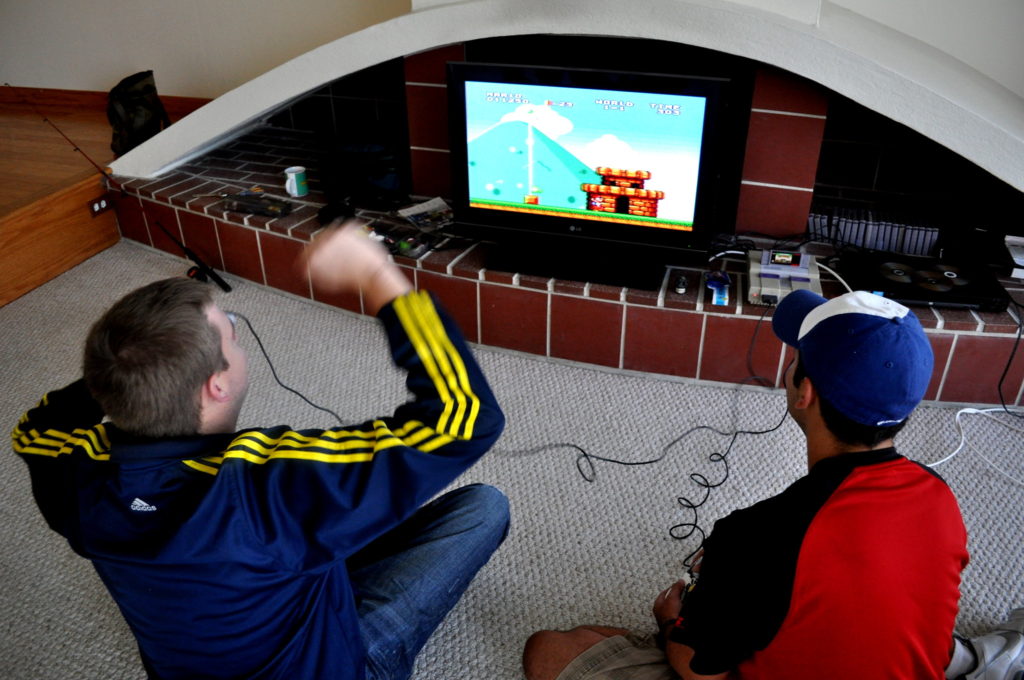
SCM: And then you keep going until eternity! It’s not something I feel like I can allow myself to do, or anyway, best not to go there at this point in my life. But you should enjoy it while you can! You are young and free! Speaking of freedom, anything you’re super excited to do in the coming months as restrictions lift in Canada and elsewhere?
CP-L: Aside from going back to Greece, which is number one on the list, I’m honestly just excited to get back to school and be in class and have my routine again. I would like to go back to a more structured lifestyle. I’ve tried to make myself a routine at home, but I’m excited to get back to something that feels more real and productive in terms of a daily framework.
SCM: Yes! It is strange to have a bunch of days all piling up on each other, with each one more or less the same as the next. It will be nice to have an actual schedule and things to be done in a concrete way. Only a couple of months left! Meanwhile, I will let you get back to the video games and the dog walking. Thanks for taking the time to do this interview – and hope to see you back over in Greece one of these days!
